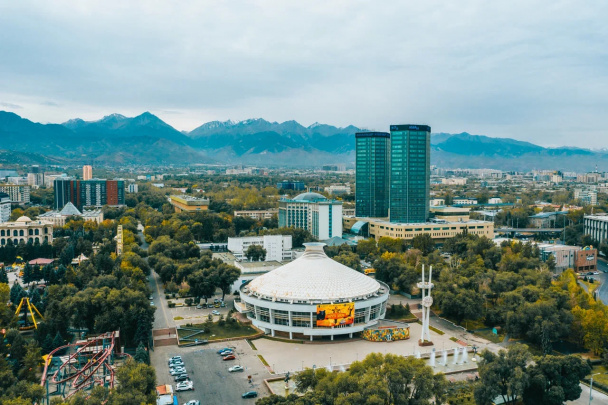Uzbekistan's 2023 Progressive Rating reveals development disparities among regions
The Center for Progressive Reforms (CPR) has released a comprehensive rating of regions based on their development dynamics for the year 2023. This initiative aims to monitor the complex development processes across various sectors, providing insights into existing opportunities for growth while highlighting local challenges. The rating serves as a tool to attract the attention of decision-makers at different levels to the issues faced by specific regions.

Global Context
This rating aligns with global practices where numerous organizations conduct independent studies to create rankings of cities and countries based on various indicators. Such rankings significantly influence a region's appeal to tourists and investors. For instance, the United Nations Development Program conducts extensive research to identify countries needing external assistance, using objective data to assess living standards globally. This facilitates measures to improve situations, such as eradicating illiteracy and addressing the impacts of climate change.
One prominent example is the Legatum Prosperity Index, which evaluates the achievements of countries through nine categories, including economy, governance, education, health, and environmental quality. Similarly, Mercer, a global human resources consulting firm, ranks cities based on 39 criteria related to political and social environments, such as healthcare quality and cost of living.
Methodology and Findings
The CPR’s experts developed a detailed methodology, analyzing 58 indicators across seven categories: health, education, economy (including employment levels and business environment), infrastructure, availability of opportunities, legislative status, and environmental conditions. Each region was scored on a scale from 0 to 100, with top-performing regions receiving the highest scores.
The inaugural top three regions in the rating were Tashkent city, Navoiy region, and Khorezm region. Tashkent led in five of the seven categories assessed. Conversely, the regions at the bottom of the ranking were Surkhandarya, Namangan, and Andijan, with Andijan scoring the lowest in both the economy and opportunities categories.
Sector-Specific Insights
- Healthcare: Significant disparities exist in healthcare access and quality among different regions. Tashkent ranked first with a score of 67.16, reflecting superior healthcare services compared to other regions. In contrast, Syrdarya and Namangan had lower scores, indicating a pressing need for improvements in medical services and public health initiatives.
- Education: Tashkent also excelled in education, scoring 94.53, while Surkhandarya and Kashkadarya lagged behind with scores of 52.39 and 57.23, respectively. These regions require targeted strategies to enhance educational quality and accessibility.
- Economy: Tashkent again led with a score of 96.20, indicating a more robust economic environment with greater opportunities for business and employment. Conversely, Surkhandarya and Andijan showed lower scores, necessitating investment to boost their economic development.
- Infrastructure: Tashkent city and region topped the infrastructure category with scores of 93.53 and 71.43, respectively. In contrast, Surkhandarya and Jizzakh had the lowest scores, highlighting the urgent need for infrastructure improvements.
- Environment: Environmental conditions varied significantly, with the Tashkent region scoring the highest due to its fertile soils and natural resources. However, Bukhara and Jizzakh scored lower, indicating a need for environmental protection measures.
The rating underscores the varied levels of socio-economic development across Uzbekistan, with Tashkent city dominating in most areas. Nevertheless, there is substantial potential for improvement in other regions, particularly in infrastructure, education, and the economy. To support national development and enhance the well-being of citizens, it is essential to prioritize investments and projects that foster growth.
The CPR plans to update the regional ratings annually and aims to enhance the system with new categories and indicators in the future. Additionally, an interactive database will be created, allowing individuals to compare regions based on the indicators that interest them.
Related News

18:11 / 27.05.2025
Global Cities Index 2025: How Central Asian capitals compare

15:53 / 26.05.2025
Central Bank raises inflation forecasts amid energy tariff hikes

12:06 / 22.05.2025
Uzbekistan develops national strategy to combat childhood cancer with support from international experts

13:52 / 16.05.2025



